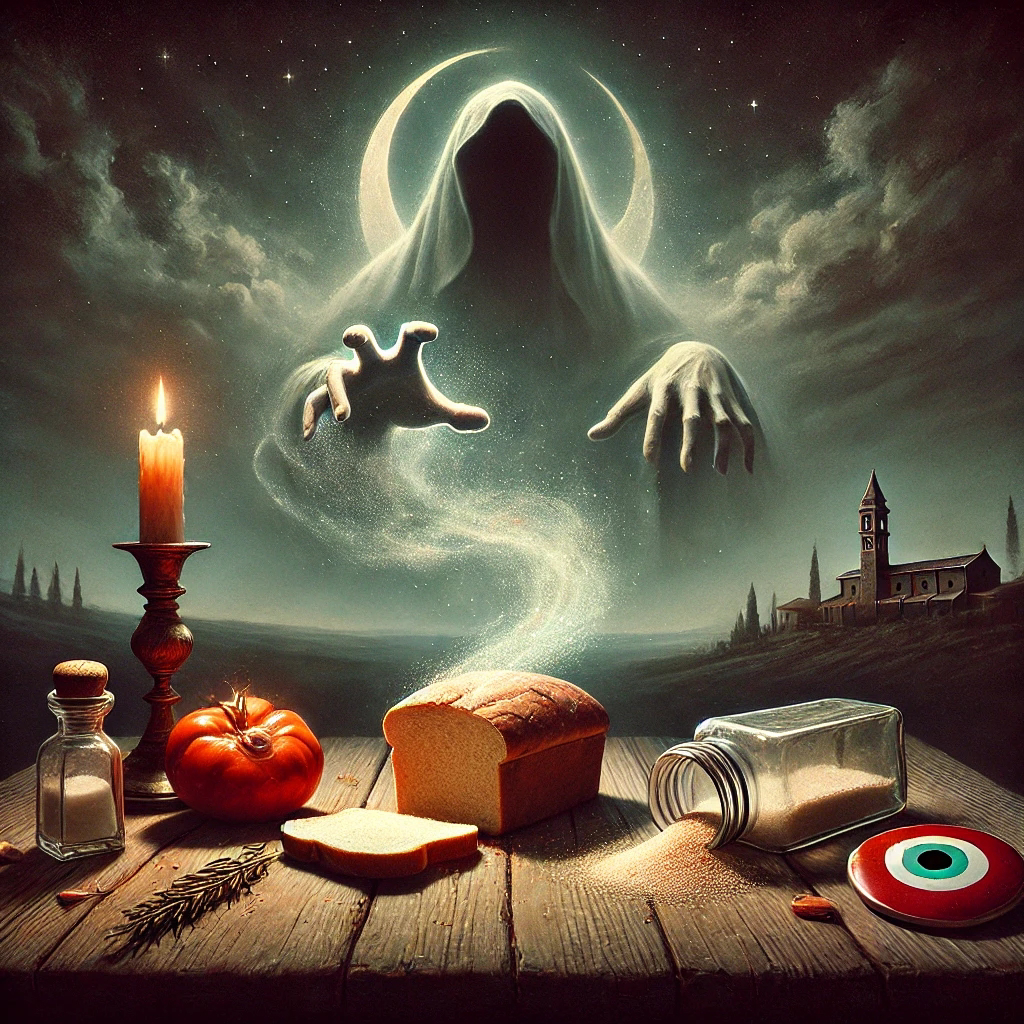Hi there, dreamers and deep thinkers,
In the heart of Italy, a land known for its rich history, passionate culture, and timeless art, lies a lesser-known treasure: its superstitions. These beliefs, often passed down through generations, weave a fascinating tapestry of mystical thinking and folklore. Today, let’s dive into the intriguing realm of Italian superstitions, focusing on the mysterious belief that dreaming about following the dead could seal your fate—and other captivating tales that reveal the Italian spirit.
—
The Dead and Dreams: A Warning from the Beyond
Italian folklore assigns deep meaning to dreams, especially those involving the dead. In many regions of Italy, it is believed that if a deceased person appears in your dream and asks you to follow them, it’s a bad omen. To go with them might symbolically mean crossing into the afterlife—a journey from which you cannot return.
This superstition likely stems from Italy’s historical ties to Catholicism, where the soul’s journey after death is a core theme. Dreams involving the dead are often seen as visits from spirits who wish to communicate, but not all visits are benign. Accepting an invitation to “follow” could symbolize spiritual surrender or readiness for death.
To counteract this ominous dream, Italians might perform rituals, pray for protection, or even seek guidance from a priest. While this belief might sound eerie, it reflects a deep respect for the spiritual and the unknown.
—
Bread on the Table: A Sign of Respect
Did you know placing bread upside down on the table is considered bad luck in Italy? Bread, often referred to as “the staff of life,” holds sacred significance. Its connection to the body of Christ in Catholicism makes it a symbol of divine sustenance and respect.
Flipping bread over is seen as disrespecting its sacredness, inviting misfortune into the household. Italians believe this small act could disrupt harmony and bring bad energy.
—
Touching Iron: The Italian Knock on Wood
In the U.S., people knock on wood to ward off bad luck, but in Italy, they “touch iron” (toccare ferro). This superstition is believed to have ancient origins, tied to the protective power of iron as a material that wards off evil spirits. If you find yourself in a superstitious moment in Italy, simply touch something metal to protect yourself from negative energies.
—
Beware the Malocchio (Evil Eye)
The concept of the malocchio (evil eye) is one of Italy’s most famous superstitions. It’s the belief that someone’s envy or ill intentions can bring harm to another person. Symptoms of being cursed with the evil eye include unexplained sickness, bad luck, or a string of misfortunes.
To protect against the evil eye, Italians use amulets like the corno (a red horn) or the mano cornuta (a hand gesture resembling horns). Some families even practice specific rituals, involving oil and water, to diagnose and cure this curse.
—
Tuesday the 17th: A Day to Stay Home
In many cultures, Friday the 13th is considered unlucky. In Italy, however, it’s Tuesday the 17th that sends chills down people’s spines. The fear of this day traces back to Roman numerals: XVII can be rearranged to spell VIXI, which means “I have lived” in Latin—an epitaph implying death.
On this day, Italians avoid major life decisions, travel, or anything risky. It’s a day to keep your head down and wait for the storm of bad luck to pass.
—
The Color Purple: Theater’s Taboo Shade
In the world of Italian theater, wearing purple is considered extremely unlucky. This superstition hails from the Middle Ages, when priests wore purple robes during Lent. Since entertainment was forbidden during this period, the association stuck, and purple became synonymous with misfortune in the performing arts.
—
Salt Over the Shoulder: A Universal Gesture
While the act of throwing salt over your left shoulder is practiced in many cultures, it holds particular weight in Italian households. Spilling salt is seen as an invitation for bad luck, a belief rooted in its historical value as a precious commodity. Tossing a pinch of salt over your left shoulder is believed to blind the devil and protect you from harm.
—
Holistic Insights into Superstitions
Superstitions like these reveal a deep connection between Italy’s cultural identity and its spiritual roots. They blend elements of religion, ancient practices, and folklore, offering a window into how Italians navigate the mysteries of life. On a psychological level, such beliefs provide a sense of control in an unpredictable world, serving as a guide for decision-making and a buffer against anxiety.
From a spiritual perspective, Italian superstitions reflect a profound respect for the unseen. Whether it’s honoring the sacredness of bread, warding off the evil eye, or interpreting dreams as messages from the beyond, these practices remind us that life’s mysteries are not meant to be dismissed but embraced with curiosity and reverence.
—
Why These Beliefs Endure
In our increasingly modern world, why do superstitions like these persist? Perhaps it’s because they connect us to something greater—our ancestors, our spiritual beliefs, and our desire to find meaning in the mundane. For Italians, superstitions are not just quirks of the past; they’re living traditions that keep the soul of their culture alive.
So next time you dream of someone from the other side, remember this: sometimes, a dream is just a dream. But in Italy, it might be a little more than that—a whisper from the unknown, a moment to pause and consider the sacred threads that bind us all.
—
Stay curious,
April
Cognitive Psycho




